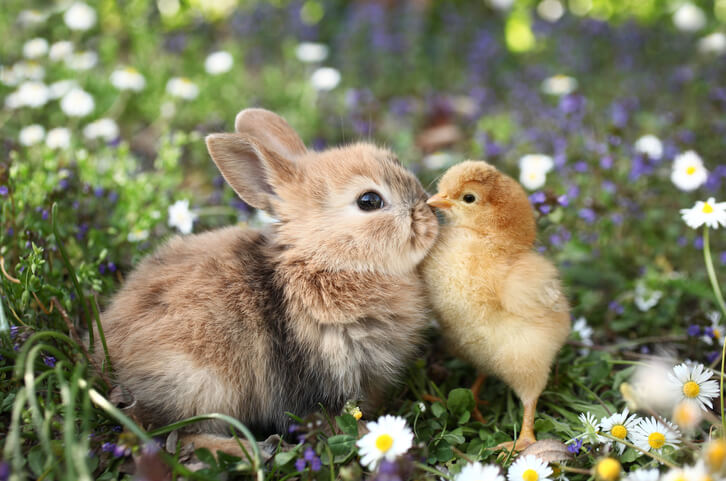Small Animals Are Not Easter Gifts, Pet Experts Warn
People have always associated certain small animals such as bunnies, chicks, and ducklings with the Easter season, but it’s important to remember that these are all living, feeling beings that deserve our respect, and should never be used as props or given as gifts.
An all-too-common occurrence is the abandoning of animals soon after the holidays end. Shelters, rescues, and wildlife rehabilitators receive numerous pleas for help when domestic animals are abandoned in the wild, typically in parks or similar areas where they are not equipped to survive.
According to Juliana Di Leonardo, a wildlife rehabilitator and vice president of Humane Long Island, “Domesticated birds have smaller wing spans, larger bodies, and require a higher caloric intake than wild birds. They also typically lack camouflage, making them easy to spot by predators.
“In other cases, people return birds to the hatchery they were purchased from; however, these baby birds won’t be reintroduced to their flock but rather may be ground up alive in machines called macerators or suffocated in trash bags.”
If you’re choosing to commit to the care of new chicks, remember that their sex is not revealed until approximately 2 months of age, meaning that it’s not impossible to wind up with a flock of roosters, which happen to be one of the most abandoned animals on Long Island.
“Any bird is a 10-year obligation, so you must plan accordingly,” says Di Leonardo. “If you’re looking for eggs, chickens typically don’t begin production until they are about 6 months old, and may be considered spent and experience reproductive disease by the age of 2 – a short window with a long commitment.” And before you get started, be sure to check your local town codes for rules about fowl ownership, as many do not allow it without special permissions.
If you’re thinking about bringing home your own personal Easter Bunny, there’s a lot to first consider. “Bunnies are sensitive animals with special needs including specific dietary restrictions and enough indoor space to run around in and stay active. They can be socialized with other animals including cats and can even be litter box trained. They should never be kept in a cage,” says Di Leonardo. “Pet rabbits should always be adopted rather than purchased, and never bring a wild rabbit in from the outdoors as they can quickly go into shock and die when handled by humans.”
The absolute best way to celebrate the season and to honor our feathered and furry friends is to visit farmed animal sanctuaries or wildlife rescues. Many offer daily tours, providing both education and a hands-on experience for all ages to enjoy.

































